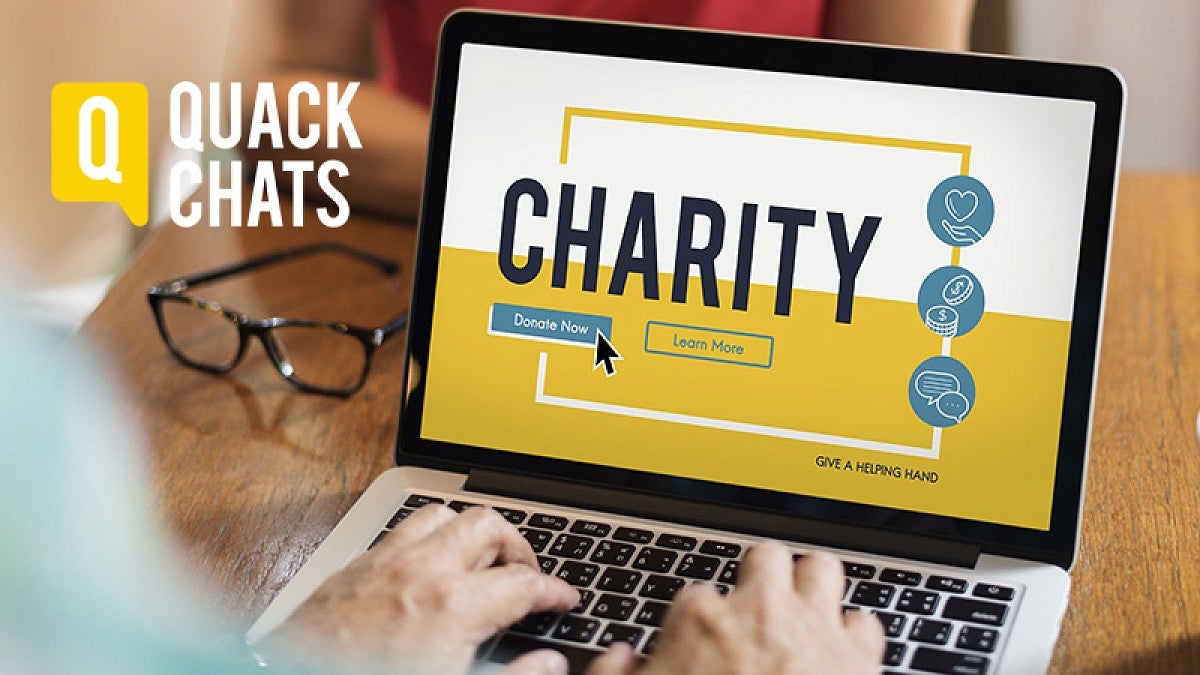At this Wednesday's Quack Chats pub talk, UO psychologist Ulrich Mayr will weigh in on a centuries-long debate: What motivates people to donate money?
While there’s little dispute that philanthropy is a common practice that funds countless services, causes and organizations, the reasons behind the choice to give away hard-earned money are less certain. Many individuals have theorized and attempted to understand the roots of philanthropy, largely because many people and institutions rely on such gifts.
But Mayr explains that a majority of the methods used to assess various theories are based on surveying participants and do not produce the most reliable results because individuals might not be truthful in their answers. So Mayr, working with UO economics professor Bill Harbaugh, decided to turn to science to attempt to solve the mystery of philanthropy.
Harbaugh will join Mayr for the talk, which is Wednesday, Jan. 11, at 6 p.m. in the Erb Memorial Union’s Falling Sky Pizzeria.
They conducted a study where participants made real decisions about whether to give cash to a charity or keep if for themselves. The researchers used the university’s MRI brain scanner, a research tool that’s fittingly a product of philanthropy itself, to examine regions of the brain associated with value and rewards to observe what activity transpired during various transactions.
While some speculate that people donate for more selfish reasons – like flaunting their wealth or bolstering their reputation – Mayr found evidence suggesting charitable giving is motivated by more altruistic and benevolent reasons. He will dive into this research and explain the study he conducted during his pub talk, “Heart of the Brain – How We Think About Charitable Giving.”
Mayr, professor and head of the Department of Psychology, will also explain how factors like age, religion, income, gender and political orientation influenced people’s charitable giving and how he believes society and institutions like the UO can foster benevolence and philanthropic activity to benefit the common good.
The event is open to the public and participants are encouraged to ask questions and engage in a conversation with the researcher during the presentation. The talk is part of a series of events that falls under the umbrella of Quack Chats, a public outreach initiative led by University Communications.
Other events this month include UO anthropologist Kirstin Sterner’s talk “Searching our DNA For What Makes Us Human” at Whirled Pies at Cozmic on Jan. 12 and UO psychologist Caitlin Fausey’s talk “What Babies See and When” at the Falling Sky on Jan. 25.
Run with a Researcher, where participants can run or walk a few miles with one of UO’s world-class researchers, is held on the first Saturday of each month. The next run is Feb. 4 at 9 a.m. starting at the Erb Memorial Union’s “O” Desk.
A full calendar of events for January and February is online at http://around.uoregon.edu/news/quack-chats.
—By Emily Halnon, University Communications


